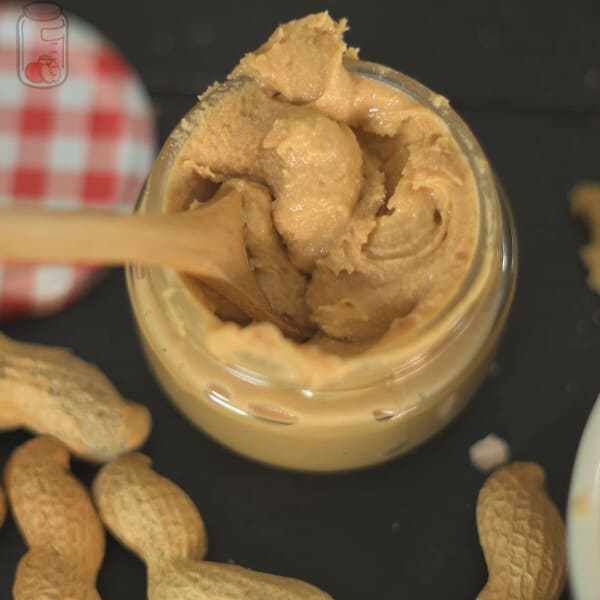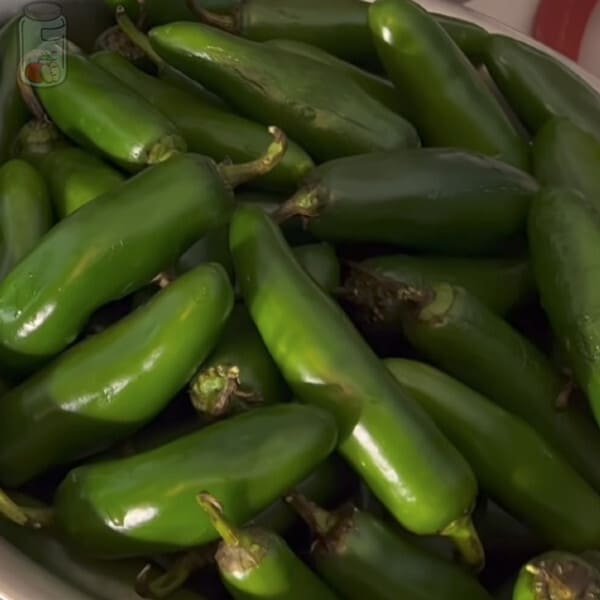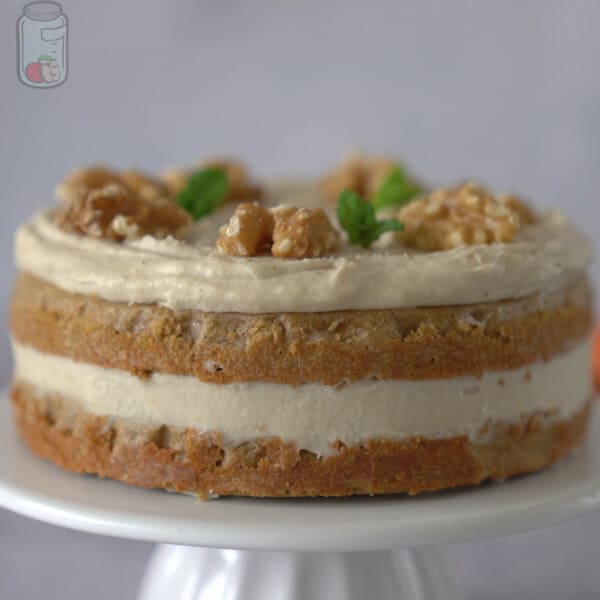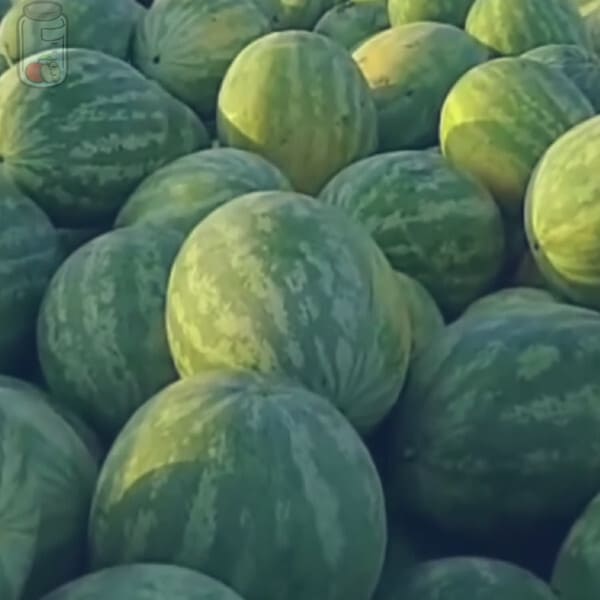Cashews are a type of dried fruit obtained by drying the seed of the fruit that the cashew tree (also called caju) bears, but, How are cashews preserved?
You can store cashews at room temperature for 2 to 4 weeks. If you store them in the fridge, they can last about six months, but if you freeze them, they will keep for up to a year.
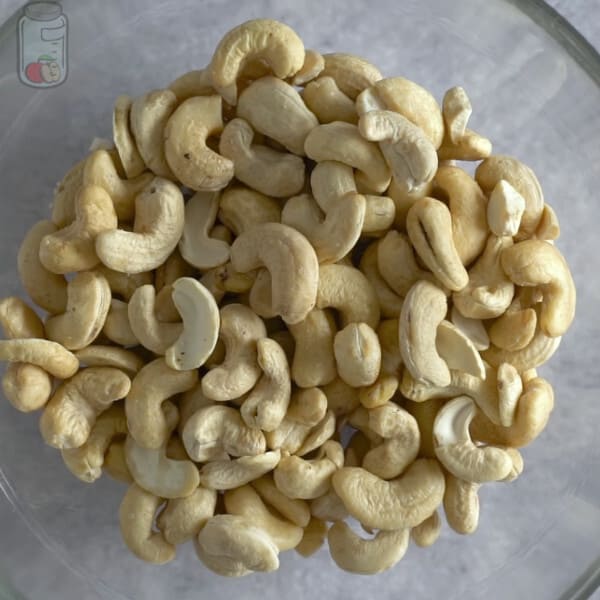
If you want to know how to preserve cashew nuts, continue reading.
How to Store Cashews at Room Temperature
In general, cashews, like other nuts, resist for many days at room temperature, so you can safely store them in an area of your pantry.
However, you must keep them well protected from external agents, especially heat, as it will quickly make the cashews lose their natural oils and become rancid.
Therefore, to store cashews at room temperature in the correct way, you have to follow the steps that I leave you below:
- Step 1: Transfer the cashews to an airtight container.
This container can be a plastic bag. However, to store food, it is best to use glass jars, and of course, all of these must have a lid or airtight seal to isolate the cashews well.
- Step 2: Label.
You should put the storage date as you will store them for many days. So, you can write it on the bag or container or stick a label with that information.
- Step 3: Store the cashews in a cool place.
As I told you before, if you want your cashews to last a long time, do not put them near places or devices that emit heat. It must also be free of moisture and dark.
In this form, the cashews will keep in good condition at room temperature for 2 to 4 weeks, depending on how fresh they are. [1]
How to keep cashews in the fridge
One of the most important aspects to remember when storing cashews in the fridge is that they must be in a container that completely seals off air and moisture.
Cashews are hygroscopic, meaning they absorb any moisture around them and the smell of other foods, so it’s essential to keep them well sealed and away from strong-smelling foods.
- Step 1: Place the cashews in an airtight container.
I advise you to use glass jars with a good airtight lid to store the cashews, but you can also use an airtight plastic bag or container.
If you don’t trust the container’s airtight seal, you can put the cashews in an airtight bag, get all the air out before closing it, and then place it inside an airtight container or another resealable bag.
- Step 2: Label.
As good practice, write the storage date on the bag or stick a label with that information on the container.
- Step 3: Store the cashews in the fridge.
As I indicated before, place the cashews away from foods that give off a strong smell, or if the container allows it, you can put it in a compartment of the refrigerator door.
In this way, the cashews can be refrigerated for six months.
How to freeze cashews
Can cashews be frozen? Sure, you can freeze them. This is a way to store many cashews without fear of them going rancid.
- Step 1: Bag the cashews.
In this case, and especially if you have many, divide the cashews into several bags to freeze, and try to get as much air out as possible before closing it.
If you don’t have bags, you can use airtight, freezer-safe plastic containers.
- Step 2: Label.
Write the storage date of the cashews on the bag.
- Step 3: Store the cashews in the freezer.
In this way, you can store frozen cashews for one year.
How to preserve roasted cashews
If you decide to roast cashews, they will last a little longer at the cost of losing some of their properties.
To toast them, you can use a conventional oven, a toaster oven, a frying pan, an air fryer, and even a microwave. If you plan to use the oven, preheat it to around 180°C (350°F).
Then, mix the cashews with a splash of oil in a bowl. Then place parchment or aluminum foil on a tray, spread the cashews, and bake for about 8 to 12 minutes, or until golden brown.
In the toaster oven and air fryer, it is a similar process, only in the air fryer, you will cook for 5 minutes and then take them out, stir them and toast again for 3 or 5 more minutes. So, in contrast, the toaster oven will only take about 5 minutes.
In the microwave, you should place the cashews spread with a bit of oil in a microwave-safe dish. Then you will brown them in batches of one minute at maximum power until they are golden, but they will not be crispy.
Finally, to toast them in the pan, use a non-thick pan, and set the heat to medium-high. Add a splash of oil to the pan and the cashews, constantly stirring until golden brown.
Here are the steps for storing roasted cashews.
- Step 1: Wait for the cashews to cool down.
If you store them while they’re still hot, it will create steam, which would then produce moisture inside the container, and that’s never a good thing for any food.
- Step 2: Bag or can the cashews.
To store roasted cashews at room temperature, I recommend using glass jars with a good airtight lid, although you can still use airtight plastic bags or containers.
For the freezer, you should only use plastic bags or containers resistant to the freezer with an airtight lid.
- Step 3: Label.
Write the storage date of the cashews on the bag or container.
- Step 4: Store the roasted cashews.
Store roasted cashews at room temperature in a dark, cool, dry place for about four weeks. If you refrigerate roasted cashews, they will keep for 6-7 months.
If you put the roasted cashews in the freezer, they will keep for 12 to 18 months.
How to store cashew jars for commercial sale
Commercially available cashew jars or bags of cashews can last a long time at room temperature, as long as you keep them sealed.
Just store these sealed packages, which mainly contain salt-roasted cashews, in a cool, dark, dry place until the expiration date stated on the package.
When you uncover them, transfer them to an airtight container or bag if you cannot reseal their original package. Then store following the directions mentioned above in the other methods.
Opened roasted cashews can last one month at room temperature, 4-6 months if refrigerated, or 9-12 months if stored in the freezer. [2]
How to preserve cashew butter
You can make a cream or butter with cashews to spread on anything you want. And it is straightforward to prepare:
- Step 1: Toast the cashews.
They don’t need to be entirely golden; when they begin to brown, you take them out. Then, you can roast them in any way I explained below (preserving roasted cashews).
- Step 2: Wait for the cashews to cool down.
Once toasted, wait a few minutes for them to cool.
- Step 3: Blend the cashews.
You can use a food processor, a food processor, or a blender (although removing it from the blender will be difficult). Put the cashews inside this device and blend until creamy. It may take about 3 or 5 minutes.
- Step 4: Transfer the cashew butter to a jar.
You will place the cashew cream in a jar with an airtight lid previously sterilized (you have to put it in a pot with water and let it boil for 15 minutes) that is completely dry.
You can also use an airtight container or bag if you want to freeze it.
- Step 5: Label.
Write the preparation date of the cashew butter on a label and stick it on the container or bag.
- Step 6: Store the cashew butter.
You can store the jar with cashew butter in a dark, dry place where the heat does not hit it directly for 2 or 3 months.
You can store the cashew butter on the coldest side of the fridge for about 4-6 months.
If you freeze it, be sure to use a freezer-safe bag or container so you can freeze the cashew butter for 12 months.
I should clarify that the cream and natural oil of cashews can separate if stored for a long time, but you just have to stir it well to solve it.
How do you know if cashews have gone bad?
One of the first signs that your cashews have gone bad or are starting to go bad is their smell. So if the cashews smell rancid, and after roasting them, they don’t get rid of that foul smell, don’t eat them.
Eating cashews that taste strange, like sour or bitter, is also not good. Also, if you notice they are moldy, throw them out.
Also, if they lost a lot of oil and got slimy and watery, you shouldn’t eat them.
Why do cashews go bad?
Cashews contain a high amount of natural fat that unfortunately does not last long, making this nut rancid.
Being exposed to heat will cause the natural fats in the cashews to come out and spoil them quickly. While if you put them in a highly humid environment, the cashew will absorb moisture, inciting the growth of bacteria and fungi.
Likewise, any fruit’s natural oxidation or aging process will cause the cashews to spoil if they are not properly stored.
How long do cashews last?
| Product | Duration |
| Cashews at room temperature | 2 – 4 weeks |
| Cashews in the fridge | 6 months |
| Cashews in the freezer | 1 year |
| Roasted cashews at room temperature | 4 weeks |
| Roasted chilled cashews | 6 – 7 months |
| Frozen roasted cashews | 12 – 18 months |
| Commercial cashew at room temperature (sealed) | Until the expiration date |
| Commercial cashew at room temperature (opened) | 1 month |
| Commercial cashew in the fridge (opened) | 4 – 6 months |
| Commercial cashew in the freezer (opened) | 9 – 12 months |
| Cashew butter at room temperature | 2 – 3 months |
| Refrigerated Cashew Butter | 4 – 6 weeks |
| Frozen Cashew Butter | 12 months |
What is the best way to preserve cashews?
Although cashews can be stored for several weeks at room temperature, the risk of them going rancid quickly in hot weather does not make them an ideal choice.
So, in my opinion, both refrigerating and freezing cashews are the best way to preserve them.
Roasted cashews don’t last much longer than fresh ones and keep the same. Also, if they have salt, it will reduce the shelf life.
On the other hand, cashews that come in sealed jars or bags last longer at room temperature as long as they are not opened. Once opened, they stay the same as home-roasted cashews.
Cashew butter has a similar shelf life to fresh cashews, so it’s a great way to get the most out of it.
If you want to learn how to store some other product, this website has an extensive list of topics concerning food preservation that you might find helpful.
[1] https://www.foodsafety.gov/keep-food-safe/foodkeeper-app
[2] https://lee.ces.ncsu.edu/wp-content/uploads/2012/12/TheFoodKeeper.pdf?fwd=no



